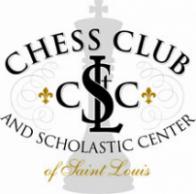Published in 2007, this study evaluated the effects of a one year, in-school chess program on cognitive development. Taking place in Seoul, South Korea, 18 students were randomly assigned to a treatment group and 20 students to the control group. Chess students received 12 weekly lessons for one academic year. The program targeted students with special education needs. Students ages 8-12 completed pre- and post-tests for Raven’s Progressive Matrices Test (RPM) and the Test of Nonverbal Intelligence (TONI-3). The pre-test scores for treatment and control students on the TONI-3 and RPM did not significantly differ. Using a 2X2 factorial ANOVA design, the authors found an effect size for the impact of chess on cognitive outcome measures of 0.172 standard deviation units. However, the results were statistically insignificant suggesting no difference between treatment and control students. The study was eligible for inclusion in the systematic literature review and categorized as Tier I since it used random assignment. However, the small sample size and sample composition of special education students limits the generalizability of the results to other student populations.
Main menu
- Visit
- Education
- Join & Give
- Events
- Club Tournaments
- Scholastic Tournaments
- Closed Tournaments
- Tournament Rules
- Tournament Terms
- Tournament Ratings
- Tournament Results
- Other Tournament Information
- 14th Annual Charity Golf Tournament
- 2024 Strategy Across The Board
- 2024 Corporate Chess League
- Event Calendar
- Streaming Calendar
- Weekly Classes & Lectures
- Blog
- About Us
OUR MISSION It is the mission of the Saint Louis Chess Club, an educational organization, to maintain a formal program of instruction to teach the game of chess and to promote and support its educational program through community outreach and local and national partnerships to increase the awareness of the educational value of chess.

Wheelchair/disability access is available in the rear - please proceed through the parking lot to our east and around to our back door. If you need additional assistance, please let us know.
The STLCC does not discriminate on the basis of race, color, religion, national origin, sex, sexual orientation, gender identity, age, ancestry, citizenship, genetic information, veteran status, marital status, pregnancy, disability, and any other category protected by applicable federal, state, or local laws or regulations in administration of its educational policies, admissions policies, scholarship and loan programs, events, programs, or activities.
The Saint Louis Chess Club complies with the Internal Revenue Service's guidelines regarding publication of its non-discrimination policy in its brochures, catalogs, advertisements and otherwise making it known to the general community.
Any violation of this policy should be reported the General Manager, Joy Bray, jbray@saintlouischessclub.org - 314.361.2437, Administrative Director, Tad Middleton, tmiddleton@saintlouischessclub.org -314.361.2437 and/or the HR Manager, Cathy Gallaher, cgallaher@saintlouischessclub.org - 314.332.5582.




